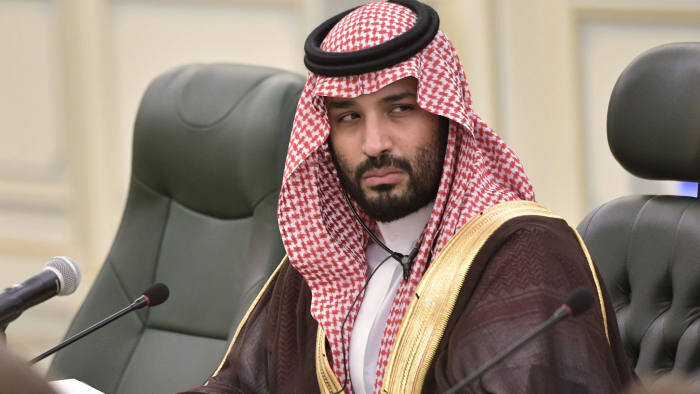MBS is not a reformer; he is mostly driven by egoism

TEHRAN - Saudi Arabia on Saturday executed 81 people, the largest known mass execution carried out in the kingdom over the past four decades.
Reportedly, the executed were convicted of crimes ranging from killings to belonging to extremist militant groups.
It is naïve to think that all those who were executed were murderers or aligned to extremist groups like al-Qaeda or ISIS.
The fact that Saudi Arabia chose this time to execute 81 men is that the world is greatly focused on the Russian invasion of Ukraine and hesitation by the West, especially the U.S., to antagonize the kingdom in order to encourage it to raise oil export to lower record-high gasoline prices.
Most probably, the majority of those who were put to death were opposed to the ruling system as the kingdom shows the least tolerance for opposition voice.
Sending 81 people to gallows in a single day is hard to believe. It is for such reasons that the name of Saudi Arabia has become synonymous with beheading. That its flag is also emblazoned with a sword conveys many things.
Probably, there were murderers and persons loyal to terrorist groups among those executed as the Saudi Kingdom has been the hotbed of extremism and terrorism, but this is not the way to handle issues.
If Saudi Arabia is really sincere in its campaign against extremism and terrorism, it must first take a deep look at its record in creating fertile grounds for violent religionists through Wahhabi and Takfiri ideologies and then take workable and careful steps to address them through effective educational and cultural programs.
The country’s Interior Ministry claimed the defendants had been able to exercise “their full rights under Saudi law” before Saudi courts, including the right to a lawyer.
But the European Saudi Organization for Human Rights said it had documented cases in which defendants had been denied access to a lawyer, tortured, and held incommunicado.
The organization said that of the cases it had been able to monitor and document among the 81 executed, it had found no charges that merited the death penalty under the criteria that Saudi Arabia has made public, the New York Times reported on Saturday. The organization added some of the charges were related to participation in human rights demonstrations.
The mass execution happened despite the fact that Saudi Arabia had promised to reform the judicial system and claims of reform by Crown Prince Mohammed Bin Salma, also called MBS, have reverberated across the world.
The execution shows that if Saudi Arabia takes a single step toward reformism, like allowing women to drive, it disappoints the world by taking a sudden astonishing decision.
Soraya Bauwens, the deputy director of Reprieve, a London-based advocacy group, said in a statement on Saturday that “the world should know by now that when Mohammed bin Salman promises to reform, bloodshed is bound to follow.”
It seems that MBS, the Saudi de facto leader, is driven mostly by his egoism. While he envies the progress the world has made in many areas and he pretends to imitate them, suddenly his egoism prevails and makes him look unpredictable and deceitful. A concrete example is the slaying and dismemberment of Jamal Khashoggi by Saudi death squads. Though he denies he was not aware of the murder, it is unimaginable that something like this happens outside a foreign country without his authorization.
It is also his egoism that doesn’t allow him to put an end to senseless seven-year airstrikes on Yemen which have cost thousands of civilian lives, including children.
All these moves have proven that MBS is unstable. And, although he has portrayed himself as a reformer, finally his egoism has prevailed and undermined some meager reforms he has made.
Leave a Comment